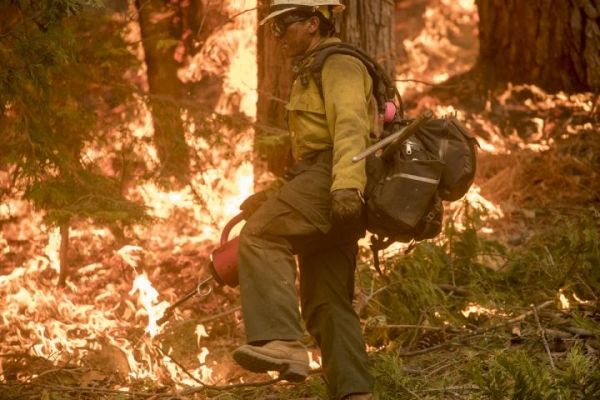Australians desperate for solutions to raging wildfires might find them 8,000 miles away, where a new Stanford-led study proposes ways of overcoming barriers to prescribed burns – fires purposefully set under controlled conditions to clear ground fuels. The paper, published Jan. 20 in Nature Sustainability, outlines a range of approaches to significantly increase the deployment of prescribed burns in California and potentially in other regions, including Australia, that share similar climate, landscape and policy challenges.
“We need a colossal expansion of fuel treatments,” said study lead author Rebecca Miller, a PhD student in the Emmett Interdisciplinary Program in Environment and Resources within the Stanford School of Earth, Energy & Environmental Sciences.
“Prescribed burns are effective and safe,” said study co-author Chris Field, the Perry L. McCarty Director of the Stanford Woods Institute for the Environment and Melvin and Joan Lane Professor for Interdisciplinary Environmental Studies. “California needs to remove obstacles to their use so we can avoid more devastating wildfires.”
Years of fire suppression in California have led to massive accumulations of wood and plant fuels in forests. Hotter, drier conditions have exacerbated the situation. Prescribed burns, in combination with thinning of vegetation that allows fire to climb into the tree canopy, have proven effective at reducing wildfire risks. They rarely escape their set boundaries and have ecological benefits that mimic the effects of naturally occurring fires, such as reducing the spread of disease and insects and increasing species diversity.
Read more at Stanford University
Image: US Forest Service prescribed burn in California's Sierra National Forest. (Credit: US Forest Service (public domain))


